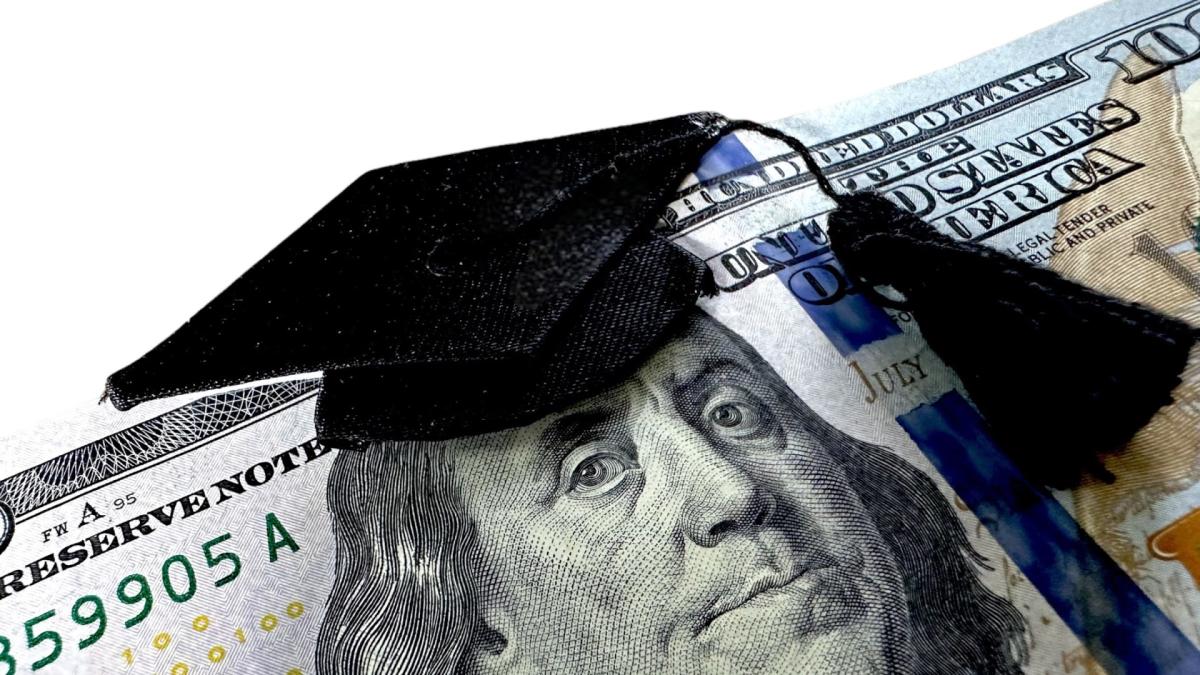Finance
Finance Docket: Supreme Court Case Could Torpedo A Future Wealth Tax – Above the Law

(Photo by Staci Zaretsky)
Ed. note: This article first appeared in the Finance Docket newsletter. Enter your email below to view the full newsletter and subscribe.
The details of any individual court case can be fascinating. At times, though, cases explode beyond the boundaries of the particular facts at issue to affect entire industries.
The Supreme Court just heard oral arguments in Moore v. United States, a dispute over $15,000 in income tax liability. This sum may seem insignificant in the grand scheme of things (and even to average litigants considering that you can barely get in the door of the courthouse for $15,000 worth of legal fees). Even so, the results might have very broad implications.
The basic question in Moore v. United States is whether income must be “realized” by a taxpayer before the federal government can tax it. For example, to realize gains as income when a stock you purchased has gone up in value, you must sell the stock. In the alternative, you can just hold onto the stock indefinitely, generally without being taxed on market gains as long as you hold it. The concept of realization of income has always been squishy at best and has led to various kinds of corporate gamification to keep gains of one form or another unrealized.
If it turns out that Congress may only tax realized gains, this will prove costly to taxpayers. Nullification of the exact one-time transition tax provision at issue for overseas investments in this case would cost the federal government about $340 billion in lost revenues over a decade.
More broadly, however, the case is seen by some as a legal referendum on the concept of a wealth tax. There is no existing federal wealth tax, of course. But if the Moores successfully dodge their $15,000 tax bill, the resulting Supreme Court precedent could prevent any sort of wealth tax from ever being imposed, at least absent the virtual impossibility of a new constitutional amendment.
Isn’t it ironic that a fight over $15,000 will determine the disposition of hundreds of billions, and perhaps even trillions, of dollars?
Most of the justices seemed swayed at oral arguments by the government’s position, which would leave the future possibility of a wealth tax intact and the Moores with $15,000 to pay. Trying to read the tea leaves at oral arguments is always a dangerous proposition though, and a real ruling isn’t expected before June.
To read the full newsletter, subscribe to Finance Docket by entering your email address below.

Finance
Can AI Solve Your Personal Finance Problems? Well …

Switch the Market flag
for targeted data from your country of choice.
Open the menu and switch the
Market flag for targeted data from your country of choice.
Need More Chart Options?
Right-click on the chart to open the Interactive Chart menu.
Use your up/down arrows to move through the symbols.
Finance
5 smart ways to use a year-end bonus
Are you expecting a year-end bonus? If so, you’re probably dreaming up all the ways you could spend that windfall.
The average bonus was $2,447 in December 2023, according to payroll company Gusto. That’s a sizeable chunk of change — one that could put you in a better place financially in 2025 with proper planning.
This embedded content is not available in your region.
If you expect a bonus to land in your account soon, it may be tempting to splurge. And that’s perfectly fine. After all, you deserve a reward after working hard all year.
However, before you make an impulsive purchase, consider a few ways you could use those funds to improve your financial situation.
In today’s high interest rate environment, it’s expensive to carry debt. And the higher the interest rates you’re paying, the faster that debt balance can grow.
So, consider using your end-of-year bonus to pay off some of your debts. Not only does this clear your balance faster, but it also saves you money in interest over time.
For example, say you have $3,000 in credit card debt at 21% APR. If you took 12 months to pay off that debt, you’d pay $279 per month and spend about $352 in interest (assuming you don’t make any new purchases on the card).
Now let’s say you receive a $2,000 bonus and use it to pay down your credit card balance to $1,000. In this case, you’d only need to pay $93 per month to eliminate your balance in one year. And you’d pay just $117 in interest — a savings of $235.
Read more: What’s more important: Saving money or paying off debt?
If you’re not sure what to do with your bonus money, you shouldn’t feel pressured to use it right away. You can set it aside in a bank account while you decide. However, if your money is going to sit in the bank, you should at least earn interest and help it grow without any work on your part.
Following the Federal Reserve’s recent rate cuts, deposit account rates are on the decline. Still, there are plenty of high-yield savings accounts, money market accounts, and certificates of deposit (CDs) that pay upwards of 4% APY (or even more). Take some time to compare today’s rates and account options and put your bonus in an account that will help it grow.
See our picks for the best account options today:
It’s important to have a financial safety net in the event of a financial emergency, such as a car repair or job loss. An emergency fund can help you keep your budget intact and avoid taking on new debt to cover a surprise expense.
It’s typically recommended that you keep enough money in your emergency fund to cover three to six months’ worth of living expenses, though you might need more in certain situations. If you don’t already have an adequate emergency fund in place, a year-end bonus could help you get started.
Read more: How much money should I have in an emergency savings account?
One of the best things you can do for Future You is invest for your golden years. In particular, retirement accounts such as 401(k)s and IRAs are a good option because you can contribute pre-tax dollars, which allows you to lower your tax bill in April (or get a bigger refund), as well as defer taxes until you make withdrawals.
For the 2024 tax year, you can contribute up to $23,000 in a 401(k), and an extra $7,000 if you’re age 50 or older. If you haven’t prioritized saving for retirement in the past, or you want to take full advantage of an employer match, you can ask your payroll department to direct some or all of your bonus to your account.
Read more: 401(k) vs. IRA: The differences and how to choose which is right for you
As we mentioned, there’s no harm in splurging once in a while, as long as your financial obligations are squared away.
If you don’t want to feel like you’re depriving yourself, set aside half of your bonus for a “responsible” purpose and use the other half however you’d like. This can give you the momentum you need to stay the course when it comes to your financial goals, while still enjoying the fruits of your labor.
Read more: How much of your paycheck should you save?
Finance
Financial Experts’ 2025 Predictions for Student Loan Debt Under President Trump

Paying off student loans can seem like an impossible task, especially when high interest rates mean loan amounts keep increasing. But student loan relief can provide a lifeline for borrowers in need.
Learn More: I’m a Retirement Planner: 7 Ways I Am Guiding Clients Now That Trump Won
Discover More: How To Financially Plan for the New Year Under the New Trump Presidency
A 2024 survey by the Consumer Financial Protection Bureau revealed that nearly 61% of borrowers who received debt relief reported the relief gave them the opportunity to make a beneficial change in their life sooner than they otherwise could have.
But with President-elect Donald Trump poised to take office in January, existing student loan relief programs are in jeopardy, meaning borrowers could face substantial changes to their monthly payments and their student loan debt.
In August 2022, the Biden-Harris administration launched the Saving on a Valuable Education (SAVE) plan to help borrowers better manage their student loan payments. This income-driven repayment plan offers several benefits to borrowers:
-
Loan payments are calculated based on a borrower’s income and family size, rather than basing payments on their loan balance.
-
Qualifying borrowers’ remaining balances can also be forgiven after a certain number of years.
-
Many borrowers’ monthly payments are reduced, and some borrowers don’t owe monthly payments at all.
-
If borrowers keep up with their monthly payments, the Department of Education won’t charge monthly interest that isn’t covered by the payments, so borrowers’ balances will decrease, and they can more easily pay off the loans.
While on the campaign trail, Trump called President Joe Biden’s planned student loan forgiveness “vile,” blaming student loan relief for increasing the federal deficit.
Check Out: How To Financially Plan for the New Year Under the New Trump Presidency
Bill Townsend, founder and CEO of College Rover, predicted that Trump will end the SAVE plan as part of a concerted effort by many conservatives to change the appeal and direction of college education.
“Interestingly enough, there is a contractual law issue that will arise from public servants who were contractually bound to certain jobs in exchange for student loan forgiveness,” Townsend explained. “Assuming SAVE, which included this preexisting loan forgiveness contract, is voided, there will be the potential for a class action lawsuit against the U.S. government.”
However, Townsend predicted that Trump could void the lawsuit with an executive action.
-

 Politics1 week ago
Politics1 week agoCanadian premier threatens to cut off energy imports to US if Trump imposes tariff on country
-
/cdn.vox-cdn.com/uploads/chorus_asset/file/25782636/247422_ChatGPT_anniversary_CVirginia.jpg)
/cdn.vox-cdn.com/uploads/chorus_asset/file/25782636/247422_ChatGPT_anniversary_CVirginia.jpg) Technology1 week ago
Technology1 week agoInside the launch — and future — of ChatGPT
-
/cdn.vox-cdn.com/uploads/chorus_asset/file/25789444/1258459915.jpg)
/cdn.vox-cdn.com/uploads/chorus_asset/file/25789444/1258459915.jpg) Technology1 week ago
Technology1 week agoOpenAI cofounder Ilya Sutskever says the way AI is built is about to change
-

 Politics1 week ago
Politics1 week agoU.S. Supreme Court will decide if oil industry may sue to block California's zero-emissions goal
-
/cdn.vox-cdn.com/uploads/chorus_asset/file/25546252/STK169_Mark_Zuckerburg_CVIRGINIA_D.jpg)
/cdn.vox-cdn.com/uploads/chorus_asset/file/25546252/STK169_Mark_Zuckerburg_CVIRGINIA_D.jpg) Technology1 week ago
Technology1 week agoMeta asks the US government to block OpenAI’s switch to a for-profit
-

 Politics1 week ago
Politics1 week agoConservative group debuts major ad buy in key senators' states as 'soft appeal' for Hegseth, Gabbard, Patel
-

 Business7 days ago
Business7 days agoFreddie Freeman's World Series walk-off grand slam baseball sells at auction for $1.56 million
-
/cdn.vox-cdn.com/uploads/chorus_asset/file/23951353/STK043_VRG_Illo_N_Barclay_3_Meta.jpg)
/cdn.vox-cdn.com/uploads/chorus_asset/file/23951353/STK043_VRG_Illo_N_Barclay_3_Meta.jpg) Technology7 days ago
Technology7 days agoMeta’s Instagram boss: who posted something matters more in the AI age





/cdn.vox-cdn.com/uploads/chorus_asset/file/25800606/Asus_NUC_14_Pro_AI_front_top.jpeg)












